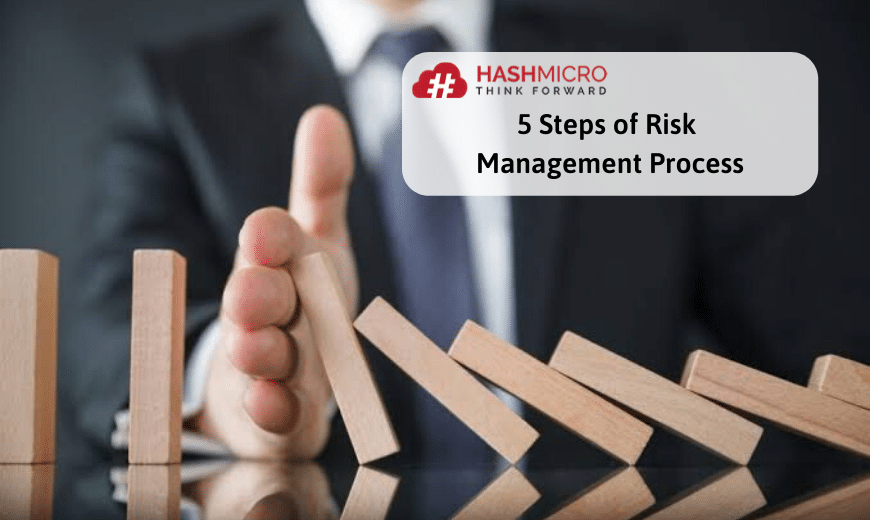There are a lot of books and documents explaining why is it important for a company to do risk management. In those books, we learn how risk management is useful to mitigate disasters from happening to your business.
The disaster we mention above is not an earthquake or hurricane. What we meant is a disaster such as a project failure and your company ends up losing money or even closing down the business. Proper risk management will help you avoid those kinds of disasters.
In its terminology, risk management is thinking about what could go wrong while working on a project or running a business, deciding how big it will impact your company, and taking precautions before it happens.

We all agree with Warren Buffet. Risks will come to you when you are ignorant. It’s important to think about what are the worst things that could happen and figure out the best way to avoid those risks.
In reality, risk management is not as complicated as you think. The most important thing is the process had to involve every aspect of your business and working on the solutions together. Here are the 5 steps of risk management:
Risk management no. 1: what could possibly go wrong?
Make a list of what could go wrong with your projects, or your company. Brainstorming with management staff is the best way to figure out what kind of disaster that could happen to your business.
By making lists, you can visualize which risks will overlap each other. This is the best way to avoid two risks happening at the same time, which will cost your company dearly.
Assign a date of each risk
After listing the risks, make a prediction about when you think it will happen. By doing this preparation, you will ready yourself to make any efforts to avoid the risk.
Assigning a date to risk can help you prioritize which one that bound to happen soon. You can also mark the risks that pose no threat any longer because the mitigation is already been placed.
Quantify the risk
The next step you have to do is quantify each risk. There are two things that need measurements, which are how likely it would happen, and how it will impact your business.
For example, let’s give a score range from 1 to 5 for both measurements. Then, multiply those numbers together to get a rating of each risk. To visualize it better, let’s take a look at this table:
From the table, we can see that the possibility of risk A from happening is pretty slim, although the impact on your company is quite severe. That’s why risk A rated 4, that you will have no problem if you put it as low priority. As for risk B, the probability and its impact are quite high. You have to put a high priority on mitigating the risk since it will harm your project or business.
You can decide the rating range together with your team. Here, we decide that scale 1 to 10 can be put on low priority, 11 to 18 is when you have to be aware of the impact of the risk, and 19 to 25 takes the highest priority since it is categorized as dangerous.
Decide upon the mitigation
Commonly, there are four kinds of risk mitigation, acceptance, avoidance, limitation, transference.
Acceptance
The first kind of mitigation that you can do is acceptance. You do a minimum to no mitigation at all since the risk is unlikely to happen or has no effect on your project/business.
Avoidance
You do anything within your power to avoid the risk from happening. Usually, you need to pour a lot of investment money to mitigate the risk. This kind of mitigation is only worth considering when the risk’s probability and impact are quite huge.
Limitation
You opt for this kind of mitigation when the risk’s probability and impact are high. You can’t avoid the risk, but you can minimize the impact on your project/business.
Transference
Instead of swallowing the bitter pills, you asked another person (or company) to do it for you. This kind of mitigation is a common practice in the human resource department.
Last step of risk management: assign responsibility
The last thing you have to do in the risk management process is assigned responsibility for each risk. The person who’s responsible for the risk has to run the mitigation process immediately, based on the priority.
It’s unwise if you have to assign the responsibility to the person that’s not present at the risk management meetings. That person will deny the responsibility for certain. Assign them to the meeting’s attendee since he/she fully understands what needs to be done.
Conclusion
Risk management is not a scary thing and needs to be avoided. By discussing it with the other members of your company, you can decide the best mitigations for each risk upon your way.

Risk management is part of project management in a company. It’s important for every project manager to acknowledge, quantify, and mitigate any risk that could happen upon working on the project or running the business. To experience the benefits of the software yourself, you can request a free demo here.






















































